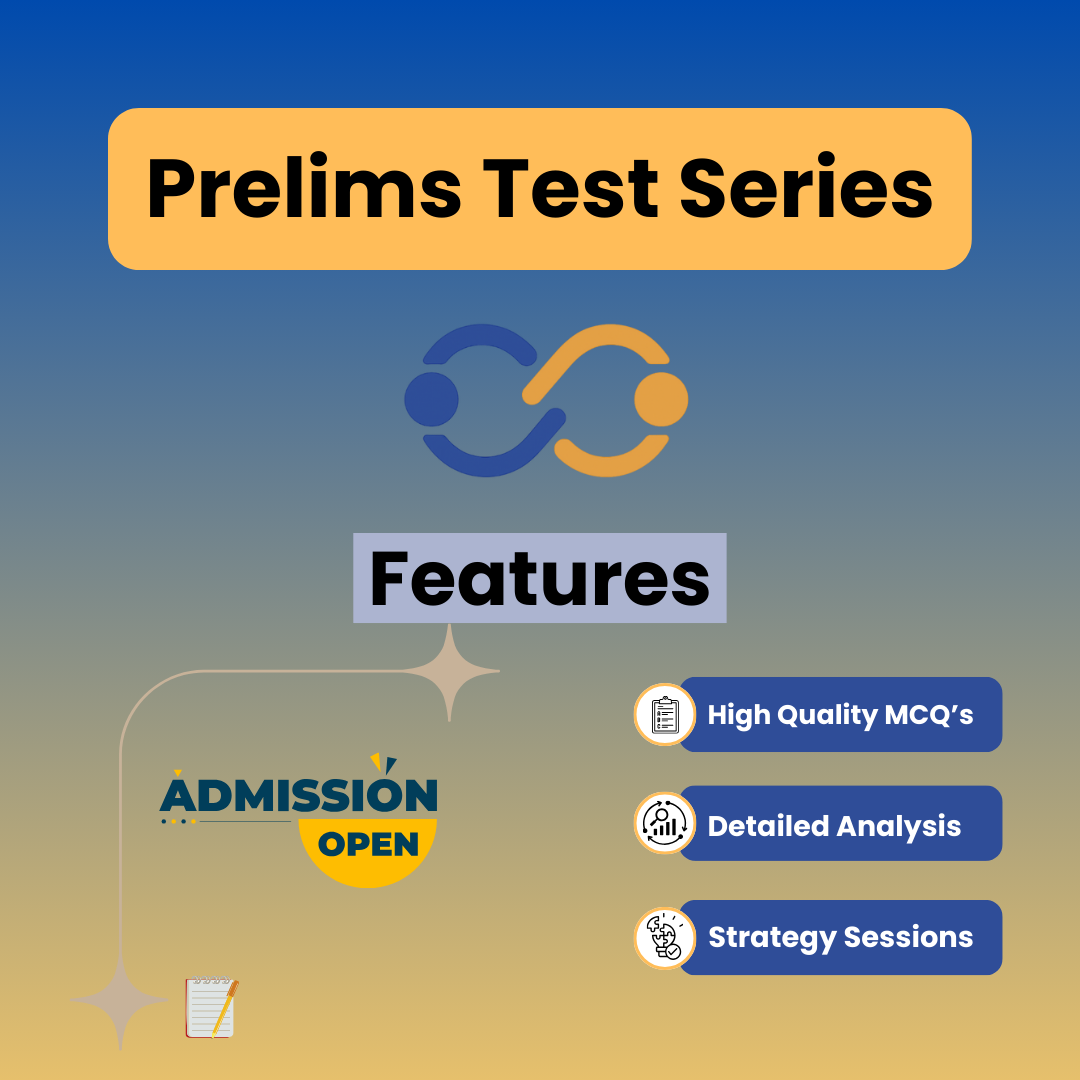Category:
Polity & Governance – Parliamentary Reforms in India
The article explores the importance of legislative oversight in a parliamentary democracy like India. It highlights the current challenges and lapses in Parliament's accountability mechanisms and proposes reforms, including post-legislative scrutiny, stronger committee systems, and the use of technology to modernise legislative work. These insights are vital for RAS aspirants in understanding governance frameworks and policy implementation in India.
Summary in Short Points:
- Parliamentary system was adopted for ensuring daily and periodic accountability of the executive.
- Oversight mechanisms like Question Hour, Zero Hour, and Standing Committees exist but often underperform.
- Question Hour in the 17th Lok Sabha functioned only 60% of the time.
- Committees have shown success in reforms like railway finance and road safety.
- Lack of post-legislative scrutiny is a major gap.
- Reforms suggested include:
- Strengthening committee work and stakeholder diversity.
- Translating reports in regional languages and increasing public accessibility.
- Leveraging AI and tech for better scrutiny.
- The goal is to enable “Maximum Accountability” alongside “Maximum Governance”.
Detailed Explanation for RAS Aspirants:
Why Parliamentary Oversight Matters:
India's parliamentary system, as defended by Dr. B.R. Ambedkar, is designed to ensure that the executive is answerable daily through questions and motions and periodically through elections. This continuous scrutiny is essential for democracy to thrive.
Existing Oversight Mechanisms:
- Question Hour – A vital tool for holding the government accountable, often underutilised due to disruptions.
- Zero Hour – Allows MPs to raise urgent public issues.
- Standing Committees – Examine Bills, policies, and financial performance in detail.
- Public Accounts Committee (PAC), Estimates Committee, and Committee on Public Undertakings – Ensure fiscal accountability.
Issues in Implementation:
- Sessions disrupted by protests reduce the utility of Question Hour.
- Committee reports often remain undebated.
- Lack of diversity and continuity in committee consultations.
- MPs lack research staff to assist with detailed scrutiny.
Examples of Successful Oversight:
- Standing Committee on Railways recommended halting dividend payments to improve financial viability.
- PAC unearthed corruption in 2010 Commonwealth Games.
- Committee recommendations on transport safety and uranium production were implemented.
Need for Post-Legislative Scrutiny:
Once laws are passed, there's no mechanism to evaluate their impact. The UK’s model, where departments submit reviews within 3-5 years, can be adapted in India. Subcommittees or an independent oversight body could help in tracking impact and suggesting course corrections.
Technology and Parliamentary Functioning:
AI and data analytics can:
- Help MPs sift through complex documents.
- Identify patterns in budgets and policy performance.
- Frame better questions based on evidence.
Suggested Reforms:
- Institutionalise committee roles with technical/research staff.
- Public engagement via visual explainers and translations.
- Mandatory ministerial response on committee findings in the House.
Conclusion:
India’s democratic strength lies not just in elections, but in continuous accountability through its Parliament. Strengthening parliamentary oversight mechanisms ensures that governance is not just effective, but also transparent, responsible, and aligned with constitutional values. As future administrators, RAS aspirants must internalise the significance of such reforms to uphold democratic principles in public service.
हिंदी में संपूर्ण सामग्री:
श्रेणी: राजव्यवस्था और शासन – भारत में संसदीय सुधार
शीर्षक:
संसदीय निगरानी को सशक्त बनाना: अधिकतम उत्तरदायित्व के लिए एक आवश्यक स्तंभ
विवरण:
यह लेख भारत में संसदीय लोकतंत्र में विधायी निगरानी की भूमिका पर केंद्रित है। इसमें संसद के निगरानी तंत्र की वर्तमान चुनौतियों का उल्लेख किया गया है और सुधारों का सुझाव दिया गया है जैसे कि कानूनों की समीक्षा, समिति प्रणाली को सशक्त बनाना और तकनीक का उपयोग करना।
संक्षेप बिंदु:
- भारत ने उत्तरदायी शासन के लिए संसदीय प्रणाली अपनाई।
- प्रश्नकाल, शून्यकाल, स्थायी समितियाँ आदि निगरानी तंत्र मौजूद हैं।
- 17वीं लोकसभा में प्रश्नकाल केवल 60% समय ही चला।
- कई समितियों की सिफारिशों से महत्वपूर्ण सुधार हुए।
- कानून बनने के बाद उनके प्रभाव की समीक्षा नहीं होती।
- सुझाव:
- समिति कार्य को अधिक व्यावहारिक और विविधतापूर्ण बनाना।
- रिपोर्ट को स्थानीय भाषाओं में उपलब्ध कराना।
- तकनीक और AI का उपयोग करके गहन विश्लेषण करना।
- 'अधिकतम शासन' के साथ 'अधिकतम उत्तरदायित्व' की भी आवश्यकता।
विस्तृत व्याख्या (RAS दृष्टिकोण से):
संसदीय निगरानी का महत्व:
डॉ. अंबेडकर ने इसे एक ऐसा ढांचा बताया जो प्रतिदिन और समय-समय पर कार्यपालिका की जवाबदेही सुनिश्चित करता है। यह लोकतंत्र की आत्मा है।
उपलब्ध निगरानी साधन:
- प्रश्नकाल: कार्यपालिका की जिम्मेदारी सुनिश्चित करता है।
- शून्यकाल: जनता से जुड़े मुद्दों को तत्काल उठाने का मंच।
- स्थायी समितियाँ: नीति और विधेयकों की गहराई से जांच करती हैं।
- लोक लेखा समिति, उपक्रम समिति आदि वित्तीय जवाबदेही सुनिश्चित करती हैं।
मौजूदा समस्याएँ:
- हंगामों के कारण कार्य बाधित होता है।
- समिति रिपोर्टों पर चर्चा नहीं होती।
- तकनीकी और अनुसंधान सहयोग की कमी।
प्रमुख सफलताएँ:
- रेलवे डिविडेंड भुगतान रोकने की सिफारिश को लागू किया गया।
- राष्ट्रमंडल खेलों की PAC रिपोर्ट ने भ्रष्टाचार उजागर किया।
- सड़क सुरक्षा और यूरेनियम उत्पादन पर प्रभावी सिफारिशें।
सुधारों की आवश्यकता:
- Post-Legislative Scrutiny यानी कानून के कार्यान्वयन की प्रभावशीलता की समीक्षा का अभाव है।
- समिति रिपोर्टों को स्थानीय भाषा में उपलब्ध कराना और मंत्री से प्रतिक्रिया अनिवार्य करना।
- समिति सदस्यों को अनुसंधान सहायता देना।
तकनीकी सुधार:
- डेटा विश्लेषण और AI से नीतियों में खामियां ढूंढना आसान होगा।
- सांसदों को सूचना आधारित प्रश्न तैयार करने में मदद मिलेगी।
निष्कर्ष:
लोकतंत्र केवल मतदान तक सीमित नहीं है, बल्कि संसद के माध्यम से निरंतर उत्तरदायित्व की मांग करता है। भारत को “अधिकतम शासन” के साथ “अधिकतम उत्तरदायित्व” की ओर भी बढ़ना होगा। RAS अभ्यर्थियों को यह समझना चाहिए कि पारदर्शी शासन के लिए मजबूत संसदीय निगरानी अनिवार्य है।
MCQs:
1.भारत में विधायी निगरानी तंत्र में कौन-सा तंत्र दैनिक उत्तरदायित्व सुनिश्चित करता है?
A. सार्वजनिक लेखा समिति
B. स्थायी समिति
C. प्रश्नकाल
D. राष्ट्रपति अभिभाषण
उत्तर: C
2.Post-Legislative Scrutiny का प्रमुख उद्देश्य क्या है?
A. विधेयकों को पारित करना
B. चुनाव प्रचार करना
C. कानूनों के प्रभाव का मूल्यांकन करना
D. न्यायपालिका की समीक्षा करना
उत्तर: C


